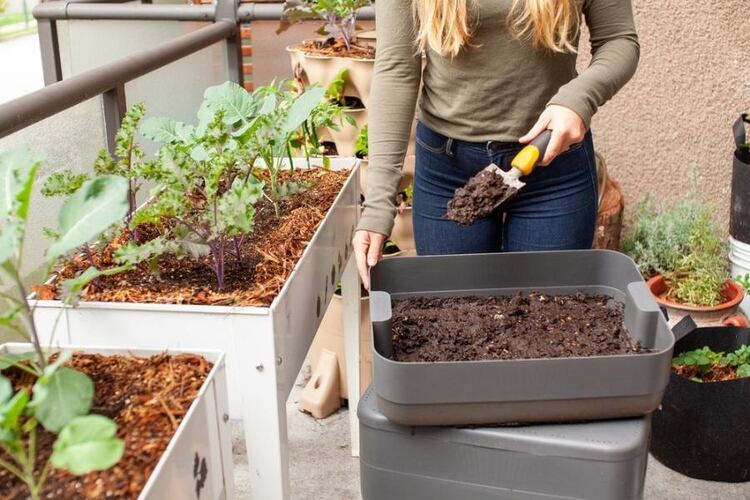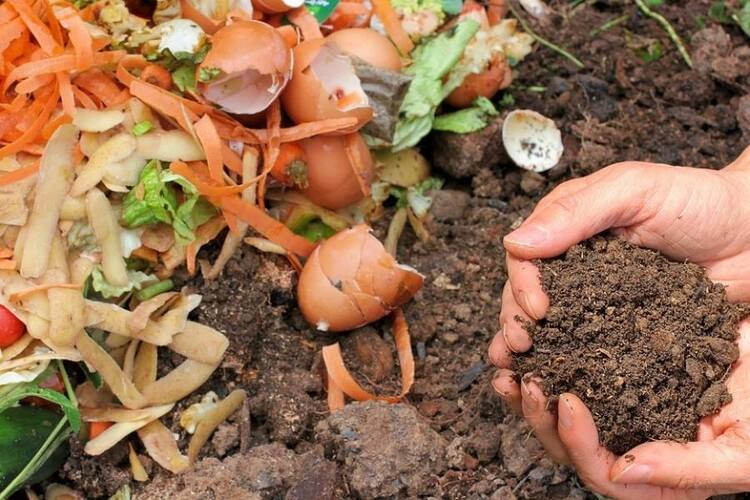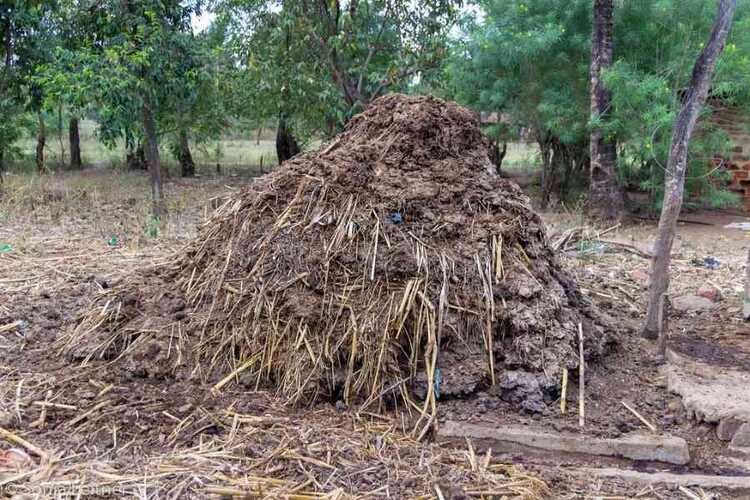Humus vs Compost: Are They Same Or Different?
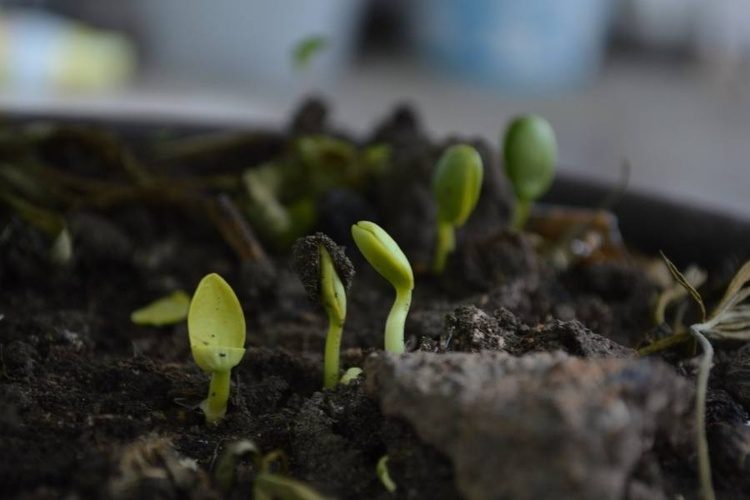
Some gardeners use the terms “humus” and “compost” interchangeably. Although they are beneficial to the crops, they differ in many ways. Humus is the stable, fully decomposed organic matter in the soil. But, compost is made from organic materials that are actively decomposing. If you need a detailed answer to the difference between humus and compost, let’s dig into basic soil terminology!
Humus Vs Compost: The Differences
You can tell the difference between humus and compost by checking their appearance and decomposing processes.
Appearance
The compost pile is soil with decomposing fruit peels or discarded meat in it. You can distinguish them since they are heterogeneous.
Humus has a dark color and a crumbly texture. It’s softer than garden topsoil, which is brown and gritty. When left alone, humus has practically no exposure to animals or humans. The degradation continues to spread.
Level of decay
Compost is the result of the decomposition process, while humus is the end product of fully decomposed organic matter. When it gets more stable, it becomes humus.
In other words, in comparison to humus, compost is made when the leaf is still decomposing. It is humus when you can’t see the leaf since it has blended with the soil.
Human involvement
Compost can be actively managed by humans to facilitate the decomposition process. Meanwhile, humans do not affect humus development. The composting bins keep receiving biodegradable matter from human habitats. You can’t see the formation of this manure.
Look at the leaf in the park in your town. Park rangers don’t collect these leaf heaps every day.
They develop there. When you visit, they have disappeared, and new leaves are taking place.
Method of decay
Compost breaks down through aerobic decomposition, which requires oxygen. Hence, you should know how people intervene in the process. Aerobic decomposition is the term for this reaction. This process is possible because man-made dumpsters come with aeration holes or are open.
Meanwhile, humus results from anaerobic decomposition or breakdown that proceeds without (or with very little) oxygen.
Nutrients
Because the matter has wholly decomposed, compost contains a wide range of nutrients, including NPK, but the nutrient concentration can vary depending on the materials used. On the other hand, humus contains more methane and carbon since the anaerobic process is similar to fermentation.
Organic Material vs. Organic Matter
To understand the differences between humus and compost, you must first understand the distinction between soil organic matter, which refers to the partially decomposed remains of dead animals or plants in the soil.
Soil includes five ingredients: parent material, moisture, gas, living organisms, and organic matter. This term, or so-called “manure”, refers to two phases of dead animals or plants in the soil.
Organic material refers to dead animals and plants in the process of decomposition. It includes dead insects, worm castings, and animal carcasses. When it has entirely degraded, the decomposed organic matter remains a stable, fibrous element.
The organic matter (manure) is inert. Hence, it does not influence the chemical characteristics of the garden soil.
What Is Humus?
Humus is the backbone of organic materials. Some people define it as naturally developed compost.
Finished compost contributes humus to the earth. You can also find it on the jungle floor, where leaves and organic things naturally degrade.
You can make humus soil by adding compost to the soil. Otherwise, humus can improve lawn plants when vegetation breaks down and becomes part of the soil.
Humus is spongy, allowing it to store up to 90% of its water content. So, humus-rich soil can retain moisture efficiently and be more resistant to drought.
The sponge also adheres to and retains essential minerals for plants, such as calcium and phosphorus. Plants will absorb these vital nutrients through their root systems.
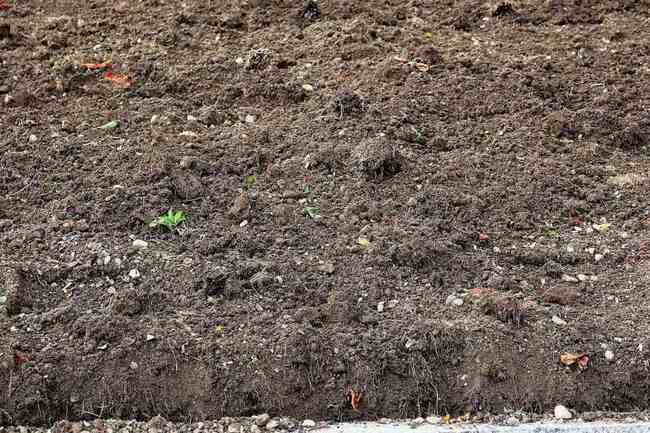
What Is Compost?
Compost is a mixture of organic materials in the process of decomposition, not specifically manure. It includes dead plant resources, such as dead leaves, grass clippings, or vegetable scraps.
When those come together and stay wet, bacteria go on a feeding frenzy, dissolving the substances at their core. In comparison to humus, the completed compost pile has the appearance and smell of new soil and is clear of large bits of matter. They improve the soil structure when put into the crop.
The humus has a high water-holding capacity, which helps retain moisture in the soil.
How to make humus soil and compost?
You can make compost for your apartment balcony in a simple container or for your garden in a specialized bin. Remember to choose ones that you can empty at the end of the season and leave no residue.
Humus is not made directly, but it is formed over time as organic matter decomposes in the soil. Gardeners also use humus-rich soil as a lawn top dressing, a mulch, and a soil amendment.
Compost’s most common application is as a soil amendment. Simply add a ratio of humus to your composted soil before planting each spring, and you’ll soon have crumbly, dark topsoil that yields healthy, sturdy plants.
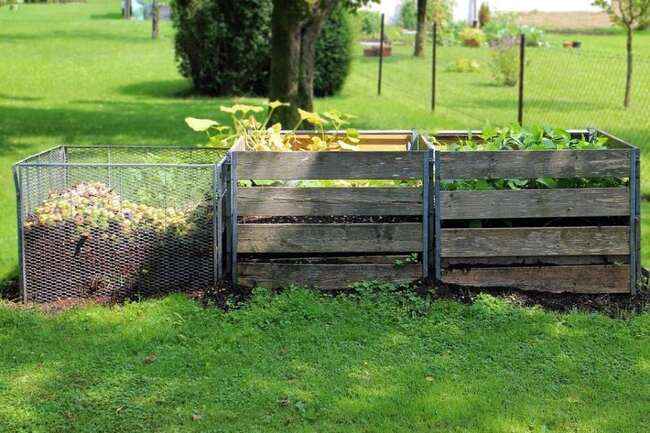
Humus vs Compost: Comparison table
We have compared the humus and compost in crucial terms. Now, let’s summarize their differences.
| Appearance | Soft and dark | Heterogeneous |
| Level of decay | Decomposed completely | Still decomposing |
| Human involvement | No | A lot |
| Method of decay | Without oxygen | With oxygen |
| Nutrient content | The high content of methane and carbon | The high content of N-P-K |
| How to apply | In a container filled with water and plant materials | In a container filled with compost and can be emptied |
What Should You Choose For Your Garden?
Compost is a plant nutrition supplement, whereas humus is a carbon-rich waste. Here are some benefits you can get when choosing one over the other:
When to choose humus?
Humus aids in the storage of moisture, which is essential for gardens in dry weather. Humus also provides an environment where other nutrients may form that is appropriate for the plants.
Although humus is still vital, composting gives more immediate advantages and eventually produces enough humus to be effective.
When to choose compost?
Good compost is damp but not wet, making it light enough to dig. It’s also good to use it immediately from the pile, cutting down on the time it takes to have it distributed and work in the soil. Your garden plants respond well to compost once you’ve applied it. They may flourish because of the minerals and carbon in the soil.
Moreover, the material itself aids in aerating the soil. Better aeration leads to a better drainage system as well as root development. You can aid in aeration by compost storage.
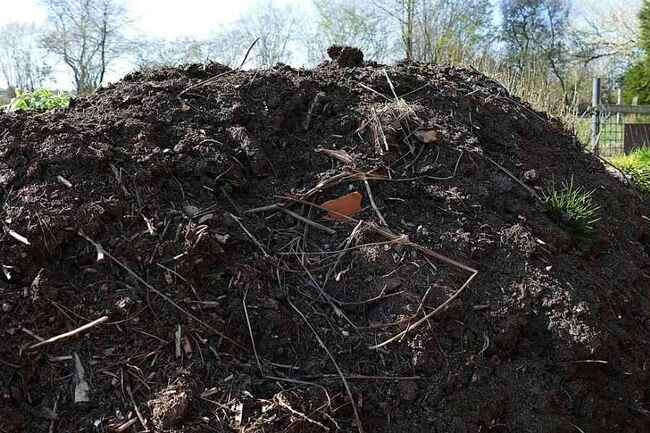
Conclusion
Both humus and compost are decomposing organic materials. The difference is in the way in which the procedure takes place. In composting, the substance decomposes into oxygen as microbes absorb it. On the other hand, humus results from the degradation of materials without oxygen. Hopefully, the comparison between humus and compost above can help you distinguish the two manures and determine which is better for your garden plant.


